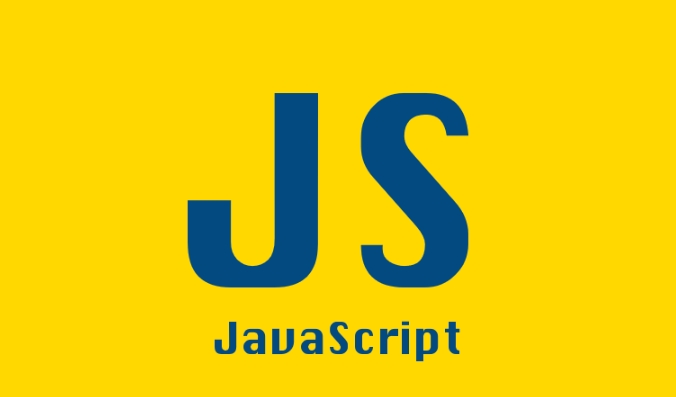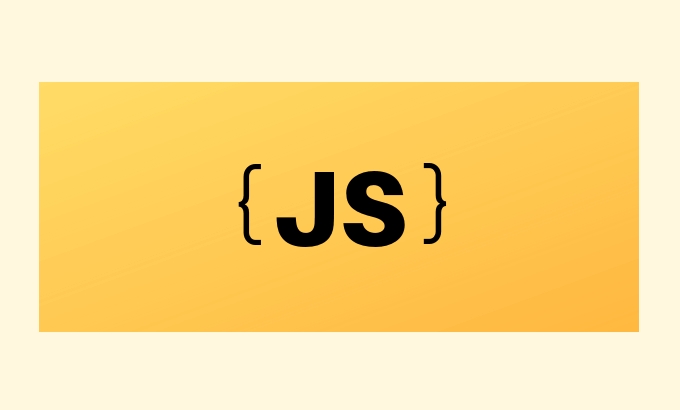localStorage is used to store data for a long time, and sessionStorage is used to store temporary during sessions. 1. Both use setItem() and getItem() to access data, but can only store strings. Objects or arrays need to be converted through JSON.stringify() before storage. 2. You can delete a single item through removeItem() and clear() to clear all data, especially for localStorages that will not expire automatically. 3. localStorage is suitable for saving long-term data such as user preferences, and sessionStorage is suitable for saving temporary data such as form progress. 4. Pay attention to security issues such as capacity limitation (about 5MB), homologous policies, synchronous operations may affect performance and inability to store sensitive information during use.

Local storage is a very practical feature in front-end development, allowing us to save data in the browser. localStorage and sessionStorage are two commonly used Web Storage APIs. They are not difficult to use, but some details still need to be paid attention to.

Simply put: if you want the data to be kept until it is manually cleared, use localStorage ; if you just want to use it during the current session, close the page and clear it, select sessionStorage .
1. Basic usage: Save and fetch
Whether it is localStorage or sessionStorage , the operation method is almost exactly the same. The most commonly used methods are setItem() and getItem() :

// Store data localStorage.setItem('username', 'john_doe'); sessionStorage.setItem('token', 'abc123'); // Get data const user = localStorage.getItem('username'); const token = sessionStorage.getItem('token');
It should be noted that only strings can be stored . If you want to save objects or arrays, you have to use JSON.stringify() to convert them first:
const user = { name: 'Alice', age: 25 };
localStorage.setItem('user', JSON.stringify(user));
// parse it back when fetching const storedUser = JSON.parse(localStorage.getItem('user'));2. Delete and clean data
Sometimes you may want to actively delete some data or clear all of them. You can use the following methods:

Delete an item:
localStorage.removeItem('username'); sessionStorage.removeItem('token');
Clear all data:
localStorage.clear(); sessionStorage.clear();
This is especially important for
localStoragebecause it will not expire automatically, and if it is unclear, the data will always be there.
3. Differences in usage scenarios
Although the APIs of the two are the same, the applicable scenarios are quite different:
localStorageis more suitable for long-term preservation of user preferences, theme settings, login status, etc. For example, remember the dark mode selected by the user last time, and you can still remember it when you open the website next time.sessionStorageis more suitable for temporary data, such as refreshing the page in the form and not wanting the user to refil, or recording the status of the current page, and automatically releasing resources after closing the tab.
For example: You are working on an online exam system. When the user answers halfway through the answer, you can save the answering progress with
sessionStorageso that data will not be lost even if the refresh is refreshed.
4. Precautions and limitations
Although these two tools are very useful, there are some limitations and precautions:
Capacity limit : Usually there is about 5MB of space under each domain name (different browsers may be different), and cannot be used to store a large amount of data such as pictures or files.
Same-origin policy : Only pages with the same protocol, the same domain name, and the same port can access the same data. For example,
http://example.comandhttps://example.comare different.Synchronous operation : Read and write operations are synchronous, and frequent and large amounts of operations may affect performance, especially on mobile.
Security issues : Don’t directly store sensitive information (such as passwords) here, because it is plain text and is easily stolen by XSS attacks.
Basically that's it. Using
localStorageandsessionStoragecan make your web page experience smoother, but don’t forget to control the amount of data and pay attention to safety.The above is the detailed content of How to use localStorage and sessionStorage?. For more information, please follow other related articles on the PHP Chinese website!

Hot AI Tools

Undress AI Tool
Undress images for free

Undresser.AI Undress
AI-powered app for creating realistic nude photos

AI Clothes Remover
Online AI tool for removing clothes from photos.

Clothoff.io
AI clothes remover

Video Face Swap
Swap faces in any video effortlessly with our completely free AI face swap tool!

Hot Article

Hot Tools

Notepad++7.3.1
Easy-to-use and free code editor

SublimeText3 Chinese version
Chinese version, very easy to use

Zend Studio 13.0.1
Powerful PHP integrated development environment

Dreamweaver CS6
Visual web development tools

SublimeText3 Mac version
God-level code editing software (SublimeText3)

Hot Topics
 JavaScript vs. Java: Which Language Should You Learn?
Jun 10, 2025 am 12:05 AM
JavaScript vs. Java: Which Language Should You Learn?
Jun 10, 2025 am 12:05 AM
JavaScriptisidealforwebdevelopment,whileJavasuitslarge-scaleapplicationsandAndroiddevelopment.1)JavaScriptexcelsincreatinginteractivewebexperiencesandfull-stackdevelopmentwithNode.js.2)Javaisrobustforenterprisesoftwareandbackendsystems,offeringstrong
 Which Comment Symbols to Use in JavaScript: A Clear Explanation
Jun 12, 2025 am 10:27 AM
Which Comment Symbols to Use in JavaScript: A Clear Explanation
Jun 12, 2025 am 10:27 AM
In JavaScript, choosing a single-line comment (//) or a multi-line comment (//) depends on the purpose and project requirements of the comment: 1. Use single-line comments for quick and inline interpretation; 2. Use multi-line comments for detailed documentation; 3. Maintain the consistency of the comment style; 4. Avoid over-annotation; 5. Ensure that the comments are updated synchronously with the code. Choosing the right annotation style can help improve the readability and maintainability of your code.
 The Ultimate Guide to JavaScript Comments: Enhance Code Clarity
Jun 11, 2025 am 12:04 AM
The Ultimate Guide to JavaScript Comments: Enhance Code Clarity
Jun 11, 2025 am 12:04 AM
Yes,JavaScriptcommentsarenecessaryandshouldbeusedeffectively.1)Theyguidedevelopersthroughcodelogicandintent,2)arevitalincomplexprojects,and3)shouldenhanceclaritywithoutclutteringthecode.
 Javascript Comments: short explanation
Jun 19, 2025 am 12:40 AM
Javascript Comments: short explanation
Jun 19, 2025 am 12:40 AM
JavaScriptcommentsareessentialformaintaining,reading,andguidingcodeexecution.1)Single-linecommentsareusedforquickexplanations.2)Multi-linecommentsexplaincomplexlogicorprovidedetaileddocumentation.3)Inlinecommentsclarifyspecificpartsofcode.Bestpractic
 Java vs. JavaScript: Clearing Up the Confusion
Jun 20, 2025 am 12:27 AM
Java vs. JavaScript: Clearing Up the Confusion
Jun 20, 2025 am 12:27 AM
Java and JavaScript are different programming languages, each suitable for different application scenarios. Java is used for large enterprise and mobile application development, while JavaScript is mainly used for web page development.
 Mastering JavaScript Comments: A Comprehensive Guide
Jun 14, 2025 am 12:11 AM
Mastering JavaScript Comments: A Comprehensive Guide
Jun 14, 2025 am 12:11 AM
CommentsarecrucialinJavaScriptformaintainingclarityandfosteringcollaboration.1)Theyhelpindebugging,onboarding,andunderstandingcodeevolution.2)Usesingle-linecommentsforquickexplanationsandmulti-linecommentsfordetaileddescriptions.3)Bestpracticesinclud
 JavaScript Data Types: A Deep Dive
Jun 13, 2025 am 12:10 AM
JavaScript Data Types: A Deep Dive
Jun 13, 2025 am 12:10 AM
JavaScripthasseveralprimitivedatatypes:Number,String,Boolean,Undefined,Null,Symbol,andBigInt,andnon-primitivetypeslikeObjectandArray.Understandingtheseiscrucialforwritingefficient,bug-freecode:1)Numberusesa64-bitformat,leadingtofloating-pointissuesli
 JavaScript: Exploring Data Types for Efficient Coding
Jun 20, 2025 am 12:46 AM
JavaScript: Exploring Data Types for Efficient Coding
Jun 20, 2025 am 12:46 AM
JavaScripthassevenfundamentaldatatypes:number,string,boolean,undefined,null,object,andsymbol.1)Numbersuseadouble-precisionformat,usefulforwidevaluerangesbutbecautiouswithfloating-pointarithmetic.2)Stringsareimmutable,useefficientconcatenationmethodsf






